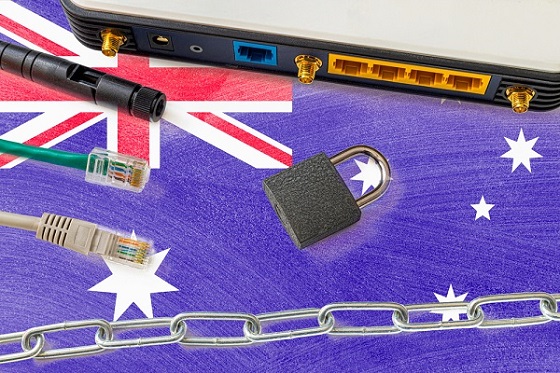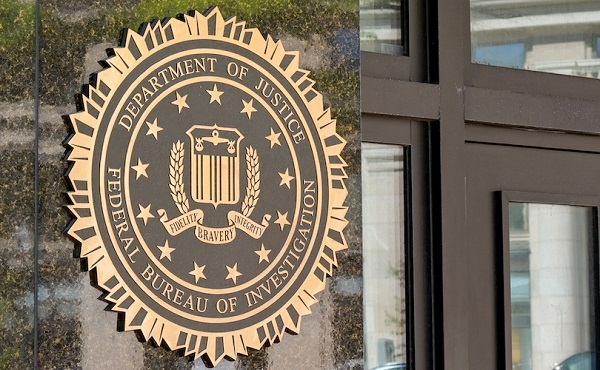Censorship Industrial Complex
New Australian law, if passed, will make the gov’t the sole arbiter of truth’

From LifeSiteNews
By David James
The main purpose of the legislation is to silence critics of the Australian government’s response to the Covid-19 crisis. What they have done instead is demonstrate that Australia does not have adequate protection for free speech, nor is it a democracy.
In a crushing blow to free speech in Australia, the lower house of federal parliament has passed an amendment, known as the Misinformation and Disinformation Bill, to the Broadcasting Services Act 1992. It imposes obligations on digital communications platform providers to prevent the dissemination of content “that contains information that is reasonably verifiable as false, misleading or deceptive, and is reasonably likely to cause or contribute to serious harm of a specified type (misinformation and disinformation).”
Several dissenting politicians have expressed outrage and incredulity at the legislative move. Nola Marino, a member of the right-wing opposition Liberal Party said that she did not think that Australia, a liberal democratic society, would ever be “debating a bill that is explicitly designed to censor and silence the Australian people.”
National Party member Keith Pitt described the legislation as a “yawning chasm that is incredibly … dangerous to this country.” He expressed shock that the amendment was being put forward, adding that Western democracies such as Australia have been built on freedom of expression and freedom of religion. Such principled objections were ignored, however. The legislation now has only to pass in the Senate (the upper house) to become law.
The first and most obvious criticism of the law is that it puts the government authority, the Australian Communications and Media Authority (ACMA) in the ridiculous position of deciding what is and isn’t “false” information. That is not only absurd – how could ACMA, for example make judgements on subjects like vaccines or viruses – it means that the law cannot be applied universally.
Governments routinely put out false information, arguably more often than they put out true information. Will they be penalized? Of course not. Advertisers present information that is false. Will they fall under his law? No. It will only be directed at people who are saying things that the government does not like, especially in relation to health policy. It is politics, not law.
When governments distort the law for political ends, it inevitably ends up in badly crafted legislation, and that is what has happened here. The law depends for its integrity on clear semantics, words whose definition is clear. But two key words, “misinformation” and “disinformation” are misleading at best.
They are variants of the word “information”; the prefixes “dis” and “mis” have been added to create the impression that what is at issue is objective truth (“information” being something objectively observable). It is a diversion. What is happening instead is that the law will target the intent of the writers.
Disinformation is defined as information that is “intended” to mislead and to cause harm. With misinformation there is no such intent; it is just an error, but even there it requires determining what is in the author’s mind. The aim is to outlaw thinking that is not congruent with the governments’ official position.
Determining a writer’s or speaker’s intent is all but impossible, however, because we cannot get into another person’s mind, only speculate on the on their motivations. Thus, someone who produces content that is deemed to be false and have caused damage could say that it was meant as irony, not literally. How is it possible to prove otherwise?
Pointing out this definitional slipperiness could be the basis for an effective rebuttal of the legislation. Courts are very poor at establishing intent.
A second problem: How do we know what meaning the recipients will get? Glance at the comments on social media posts and you will see an extreme array of views, ranging from approbation to intense hostility. To state the obvious, readers think for themselves and inevitably derive different meanings. Anti-disinformation legislation, which is justified as protecting people from bad influences for the common good, is not merely patronizing and infantilizing, it treats citizens as mere machines ingesting data – robots, not humans. It is legislation that is not just aimed at controlling the thoughts of the producers of the content, it is targeted at the thoughts of the recipients: two layers of absurdity. The result would be like targeting the “thought crimes” depicted in George Orwell’s Nineteen Eighty Four.
Censorship regimes operate on the assumption that if a sufficient proportion of the available content is skewed towards pushing state propaganda, then the audience will inevitably be persuaded to believe the authorities. But what matters is the quality of the content, not the quantity of the messaging. Repetitious expressions of the government’s preferred narrative eventually become meaningless, while sound analyses will cut through.
The main purpose of the legislation is to silence critics of the Australian government’s response to the COVID-19 crisis. The aim is to ensure that in future health authorities and the political class are immune from scrutiny and criticism. It is unlikely to be effective. What they have done instead is demonstrate that Australia does not have adequate protection for free speech, nor is it genuinely a democracy.
Censorship Industrial Complex
Global media alliance colluded with foreign nations to crush free speech in America: House report

From LifeSiteNews
By Dan Frieth
The now-defunct ad coalition GARM shared insider data and urged boycotts of Twitter to punish non-compliance with its ‘harmful content’ standards, a US House Judiciary report shows.
A new report from the U.S. House Judiciary Committee has shed light on what it describes as an alarming collaboration between powerful corporations and foreign governments aimed at suppressing lawful American speech.
The investigation focuses on the Global Alliance for Responsible Media (GARM), an initiative founded in 2019 by the World Federation of Advertisers (WFA), which the committee accuses of acting as a censorship cartel.
According to the report, GARM, whose members control about 90 percent of global advertising spending, exploited its market dominance to pressure platforms like Twitter (now X) into compliance with its restrictive content policies.
A copy of the report can be found HERE.
The committee highlighted how GARM sought to “effectively reduce the availability and monetization” of content it deemed harmful, regardless of public demand for free expression.
Documents obtained by the committee reveal direct coordination between GARM and foreign regulators, including the European Commission and Australia’s eSafety commissioner.
In one exchange, a European bureaucrat encouraged advertisers to leverage their influence to “push Twitter to deliver on GARM asks.”

Similarly, Australia’s eSafety Commissioner Julie Inman Grant praised GARM’s “significant collective power in helping to hold the platforms to account” and sought updates to “take into account in our engagement and regulatory decisions.”

Robert Rakowitz, GARM’s co-founder and initiative lead, expressed a chilling goal in private correspondence, stating that silencing President Donald Trump was his “main thing” and likening the president’s speech to a “contagion” he aimed to contain “to protect infection overall.”

The report outlines how GARM distributed previously unavailable non-public information about Twitter’s adherence to its standards, fully aware this would prompt advertisers to boycott the platform if it failed to conform. According to the House report, Rakowitz admitted that this information sharing was designed to encourage members not to advertise on Twitter.
He went as far as to draft statements urging GARM members to halt advertising on the platform, telling colleagues he had gone “as close as possible” to saying Twitter “is unsafe, cease and desist.”
Despite the widespread impact of GARM’s actions, including what the committee describes as coerced “concessions” from platforms, internal polling circulated within GARM showed that “66 percent of American consumers valued free expression over protection from harmful content.”
Still, GARM pressed ahead with efforts to “eliminate all categories of harmful content in the fastest possible timing,” ignoring consumer preferences.
Even after GARM dissolved in 2024 amid legal challenges, similar efforts persisted.
A new coalition led by Dentsu and The 614 Group briefly attempted to revive GARM’s mission before disbanding under scrutiny. Gerry D’Angelo, a former GARM leader, reflected on the initiative’s overreach, stating, “Did we go too far in those first rounds of exclusionary restrictions? I would say yes.”
The Judiciary Committee warns that despite GARM’s downfall, the threat of collusion to stifle free expression remains.
It pledged to continue oversight to defend “the fundamental principles” of the Constitution and ensure that markets, not coordinated censorship efforts, shape the flow of information in the digital age.
Reprinted with permission from Reclaim The Net.
Censorship Industrial Complex
FBI urged to release withheld records on Hunter Biden laptop, other ‘Twitter Files’

From LifeSiteNews
By Dan Frieth
Judicial Watch initiated the lawsuit in April 2023, targeting the DOJ, the Department of Homeland Security, and the Office of the Director of National Intelligence
A hearing took place Wednesday, before U.S. District Judge Sparkle L. Sooknanan, in a Freedom of Information Act (FOIA) lawsuit brought by Judicial Watch against the Department of Justice (DOJ).
The case seeks records related to the “Twitter Files,” particularly those involving Hunter Biden’s laptop and allegations of censorship.
The only matter still pending is the FBI’s withholding of records detailing two meetings between agency officials and Twitter representatives from the Biden administration.
Judicial Watch initiated the lawsuit in April 2023, targeting the DOJ, the Department of Homeland Security, and the Office of the Director of National Intelligence.
The legal action followed the FBI’s failure to respond to a December 2022 FOIA request for communications between FBI personnel and key Twitter figures, including Yoel Roth, Vijaya Gadde, and Jim Baker, from June 2020 to December 2022.
These individuals were involved in discussions about suppressing the New York Post’s Hunter Biden laptop story, as disclosed in journalist Matt Taibbi’s December 2022 “Twitter Files.”
Tom Fitton, president of Judicial Watch, expressed strong disappointment: “It is frustrating beyond belief for Judicial Watch to have to go to federal court for basic information on Biden’s abuse of the FBI, using Twitter to censor and monitor Americans.”
Through a mix of FOIA requests and legal action, Judicial Watch continues to document extensive censorship efforts that affected tens of millions of Americans.
In November 2024, it obtained DHS records showing a widespread campaign, by both government and private groups, to police and suppress social media posts concerning election fraud in 2020.
Additional records from June 2024, released through Judicial Watch litigation, revealed that just before and after the 2020 election, state officials flagged alleged misinformation and sent it to entities like the Center for Internet Security, CISA, and the Election Integrity Partnership (EIP), a DHS-backed nonprofit known for targeting online election discourse.
In December 2023, DHS documents exposed coordination between CISA and the EIP to conduct “real-time narrative tracking” on major social media platforms in the run-up to the 2020 vote.
Similar records surfaced in November 2023, showing EIP’s influence over platforms such as Google, Twitter, Facebook, TikTok, Pinterest, and Reddit to suppress “disinformation.”
Reprinted with permission from Reclaim The Net.
-

 COVID-192 days ago
COVID-192 days agoOntario man launches new challenge against province’s latest attempt to ban free expression on roadside billboards
-

 COVID-1919 hours ago
COVID-1919 hours agoNew Peer-Reviewed Study Affirms COVID Vaccines Reduce Fertility
-

 Business15 hours ago
Business15 hours agoOttawa Funded the China Ferry Deal—Then Pretended to Oppose It
-

 Alberta2 days ago
Alberta2 days agoAlberta Next Takes A Look At Alberta Provincial Police Force
-

 Alberta2 days ago
Alberta2 days agoCanadian Oil Sands Production Expected to Reach All-time Highs this Year Despite Lower Oil Prices
-

 MAiD17 hours ago
MAiD17 hours agoCanada’s euthanasia regime is not health care, but a death machine for the unwanted
-

 International2 days ago
International2 days agoPresident Xi Skips Key Summit, Adding Fuel to Ebbing Power Theories
-

 Alberta18 hours ago
Alberta18 hours agoThe permanent CO2 storage site at the end of the Alberta Carbon Trunk Line is just getting started





